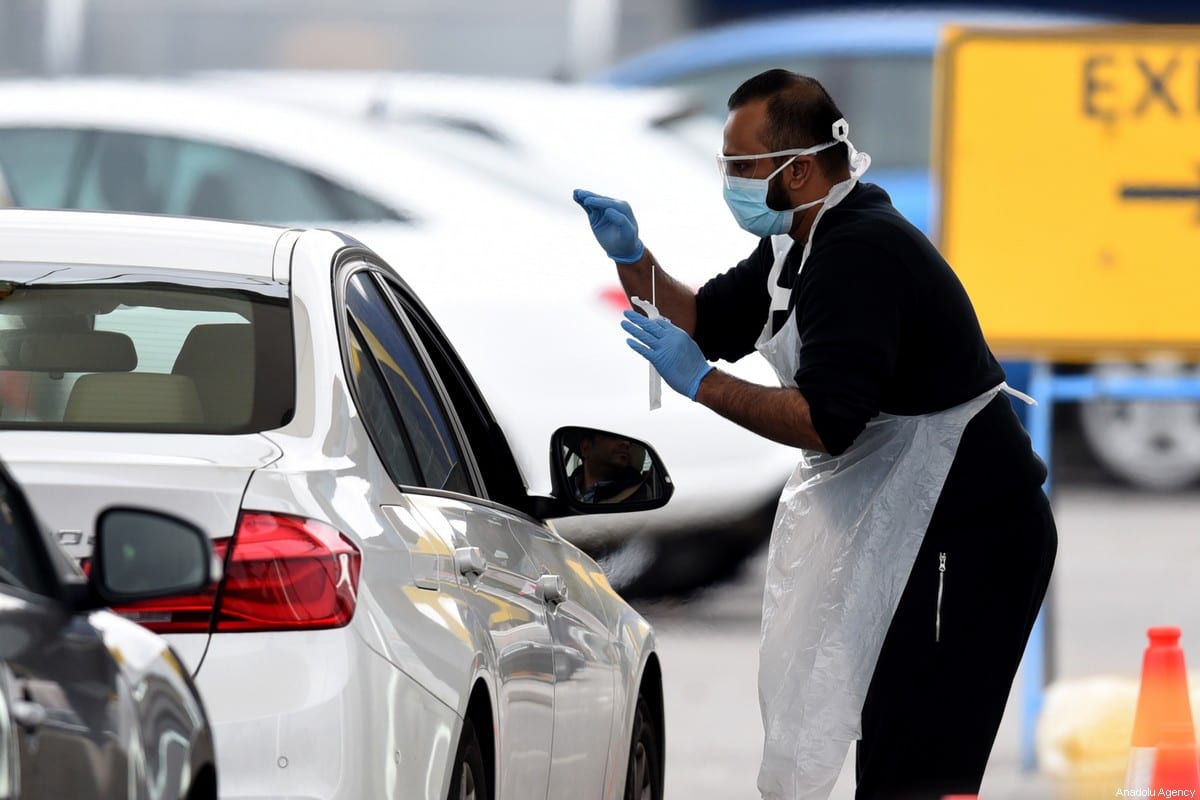Nearly two years into the pandemic, COVID testing is an essential part of production as companies of all sizes look to comply with protocols, keep sets safe and contain risk. The challenge for testing labs is to keep up with the ever-changing variants. Currently, it’s the highly transmissible Omicron variant.
Even fully vaccinated people who believed the shots were a step back to normalcy have been watching anxiously as Omicron has jumped from 12.6 percent to 58.6 percent of COVID-19 cases by Christmas. While early research suggests Omicron may cause milder illnesses, testing remains an important tool for productions to keep their cast and crew safe.
Here’s what production companies need to know about testing in the age of Omicron… and what experts say you should do if a member of your cast or crew test positive.
How long to wait to test after exposure?
Every viral disease has an incubation period. That’s the time from when you were exposed to a pathogen to when it can be detected. Currently, the Centers for Disease Control and Prevention (CDC) recommends waiting five after exposure to COVID before taking a test. Early data suggests that it takes only around two to three days for people to start showing symptoms after exposure to Omicron. In addition, Rachael Piltch-Loeb, a researcher at the Harvard T.H. Chan School of Public Health, says that tests seem to be picking up the virus within about two days of exposure. Although that speaks to the quick transmissibility of the virus, the upside is that it may take under five days to get a positive result, allowing productions to make changes.
Which test to use?
Polymerase Chain Reaction (PCR) tests are the gold standard for detecting COVID. These tests, which look for the presence of genetic material from the virus, are highly sensitive and unlikely to have false positives. Given how quickly Omicron can spread, productions should use labs that offer PCR tests with results in less than 24 hours.
Rapid antigen tests are less reliable. Studies have shown that rapid tests overall are able to catch up to only 85 percent of COVID cases. They detect pieces of proteins from the virus and work best when you have a higher viral load. That is why they’re used when people are already symptomatic. Check the CDC website, which lists the best rapid antigen tests that have been authorized for emergency use in the U.S.
Ultimately, choosing a test comes down to risk tolerance. PCR tests are the most accurate but rapid antigen tests have their place, particularly when someone is symptomatic. It depends on the time frame you are working in. When there’s more than 24 hours before the start of production, do a PCR test. For same day tests, do a PCR test in addition to a rapid antigen test. That way you’ll have an immediate result but also PCR confirmation within 24 hours. But to be clear, it’s always best to test cast and crew 24 – 72 hours prior to the start of work.
If you test positive, what do you do?
Each variant changes the guidance slightly. On December 27, the CDC issued new guidelines for people testing positive for COVID:
- Stay home or self isolate for 5 days.
- If you have no symptoms or your symptoms are resolving after 5 days, you can leave your house.
- Continue to wear a mask around others for 5 additional days.
It’s important to always confirm a positive test. If the person is vaccinated and doesn’t have any symptoms, follow up with a second rapid test later that day or the next. If both tests are positive, they pose an infectious risk. When the second test is negative, then the results are inconclusive. They should get a PCR test after that to be certain.
When a cast or crew member tests positive during a work day, contact tracing becomes critical. Production must notify anyone that person had close contact with from the previous two days. In some cases, that might mean a temporary shutdown of the set to test all individuals.
Who pays for the tests?
In film and video production, it is the client’s responsibility to pay for the tests. Cast and crew are either reimbursed for the test costs or payment is already in place with the lab. If a cast or crew member wants additional tests, the production company decides who will pick up that expense. As testing is often an uncontrolled expense (i.e. how many tests are necessary), it is listed as a cost-plus budget item.
COVID test prices depend on type of test, test location and how quickly you need to have the results. Here are some current ranges:
- Rapid Antigen – $75 – $100/test
- PCR (24-hour turnaround) – $150 – $175/test
- PCR (1-hour turnaround) – $250 and up/test
Production can also schedule a concierge nurse to come to set for testing at an even higher amount. Although Congress passed laws mandating free COVID-19 testing, the scheduling and result wait times can range anywhere from two to five days. When time is a factor, it is best to schedule your own test.
While solutions to the COVID crisis have shifted to vaccinations, testing remains key to combating the spread of the virus. But the CDC and experts point out that some protection against the virus is always better than none. If there’s any time to get vaccinated, this is the time. You’re going to want that protection in the weeks ahead as Omicron and other eventual variants surge across the country.

